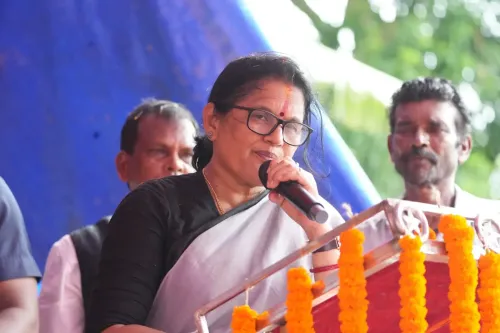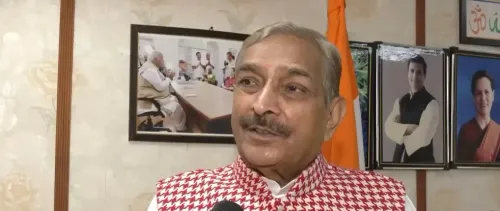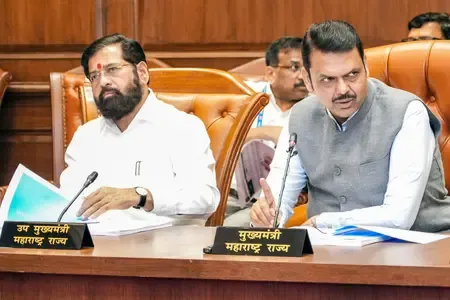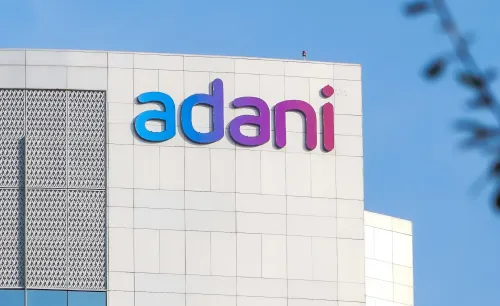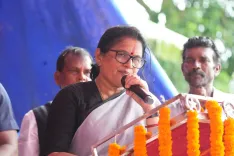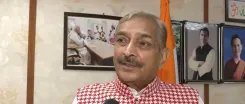Did the SC Hear Bail Petitions in the Delhi Riots 'Larger Conspiracy' Case?
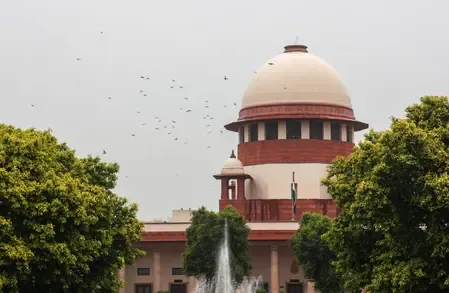
Synopsis
Key Takeaways
- Umar Khalid, Sharjeel Imam, and Gulfisha Fatima are facing serious allegations related to the Delhi riots.
- The Supreme Court is hearing their bail pleas under the UAPA.
- The defense argues that the prosecution has delayed the trial.
- Significant implications for civil rights are at stake in this case.
- The next hearing is set for November 3.
New Delhi, Oct 31 (NationPress) The Supreme Court has examined the bail requests of student activists Umar Khalid, Sharjeel Imam, and Gulfisha Fatima, who are implicated in the purported "larger conspiracy" behind the 2020 North East Delhi riots, facing charges under the strict Unlawful Activities (Prevention) Act (UAPA).
A panel of Justices Aravind Kumar and N.V. Anjaria listened to the arguments presented by the petitioners and postponed the discussion until Monday (November 3) to continue with the submissions from co-accused individuals and the Delhi Police.
Senior advocate Kapil Sibal, representing Umar Khalid, argued that the prosecution has repeatedly delayed the trial and is now attempting to place the blame on the accused.
“They claim I am the one causing delays; however, the facts suggest otherwise,” Sibal asserted.
“Among the 751 FIRs related to the riots, Khalid was implicated in only one. He wasn’t even present in Delhi during the riots,” Sibal noted, adding that no incriminating evidence was found against him.
He contended that none of Khalid’s actions fit the definition of a “terrorist act” as per UAPA, referencing the bail granted to co-accused Asif Iqbal Tanha, Devangana Kalita, and Natasha Narwal.
“They received bail. Khalid was not present in Delhi, and the evidence and witnesses remain the same,” Sibal argued.
Senior Advocate Siddharth Dave, representing Sharjeel Imam, claimed that the prosecution took over three years to finalize the investigation and continued submitting supplementary chargesheets until September 2024.
“The trial could not advance as the investigation was stated to be ongoing. Hence, three out of five years were spent in investigation,” Dave explained to the Justice Kumar-led panel.
He added that Imam has been incarcerated since January 25, 2020, nearly a month prior to the riots that erupted in late February. “If I have been in custody since January, what role could I have played in orchestrating the riots that occurred in February? My speeches were delivered in December 2019—two months before the riots,” Dave stated.
In response to the court’s inquiry regarding the nature of the speech, Dave clarified, “I called for chakka jams (blockades) as part of protests against the Citizenship Amendment Act (CAA). There was absolutely no call for violence.”
Representing Gulfisha Fatima, senior advocate Abhishek Manu Singhvi claimed that the only allegation against her was setting up a protest site.
“No violence occurred at those sites. There is neither oral nor documentary evidence indicating any violent material was present where I was,” Singhvi stated.
The Justice Kumar-led bench will proceed with the bail requests of other co-accused Meeran Haider, Mohd Saleem Khan, and Shifa Ur Rehman on Monday (November 3).
In a detailed counter affidavit submitted earlier this week, the Delhi Police opposed the bail requests of Khalid and Imam, labeling them as “key conspirators” who premeditated and meticulously coordinated the Delhi riots.
The affidavit alleged that the conspiracy was timed with then-U.S. President Donald Trump’s visit to India to “attract international attention” and depict the CAA protests as a pogrom against Muslims.
It characterized Umar Khalid as a “mentor” who mobilized networks through the Jamia Coordination Committee (JCC) and Delhi Protest Support Group (DPSG). It also cited protected witness statements and digital evidence linking Khalid and Imam to the alleged planning of protest sites that turned violent.
According to the police, Sharjeel Imam’s “chakka jam model” first emerged in Shaheen Bagh and later spread to Khureji, Seelampur, and Jaffrabad, allegedly constituting the initial phase of the riots, with Khalid purportedly overseeing the February 2020 violence.
The affidavit recorded 53 fatalities, 530 injuries—including 106 police personnel—and property losses exceeding Rs 21 crore, claiming that the accused aimed to “destabilize the country” by framing the CAA as a campaign of “ethnic cleansing or pogrom against the Muslim community”.

